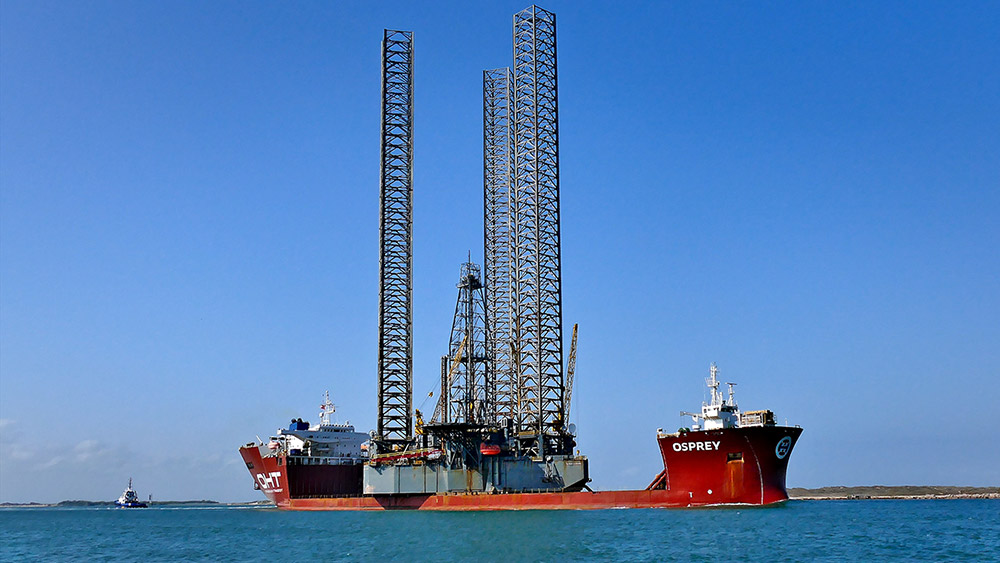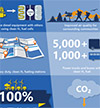Following a 2021 attempt to lease half a million acres off the coast of Texas, ExxonMobil has leased 271,000 acres from the Texas General Land Office for offshore carbon dioxide (CO2) capture.
During carbon capture, CO2 generated from industrial activity is stored underground rather than released into the atmosphere. Oil companies have been using the technology to try to reduce emissions and combat climate change.
ExxonMobil’s carbon capture and storage operation includes more than 1,500 miles of CO2 pipeline — the largest in the U.S. — and storage sites throughout the Gulf Coast, according to the company’s website. ExxonMobil says the operation has the potential to reduce carbon dioxide emissions by more than 100 million metric tons annually.
This is yet another sign of our commitment to CCS.
“This is yet another sign of our commitment to CCS and the strides we’ve been able to make,” Dan Ammann, president of ExxonMobil Low Carbon Solutions, said in a news release announcing the deal with the Texas General Land Office. “With our growing roster of customers ready to deploy CCS, we’ll be driving substantial emissions reductions along the Gulf Coast through a comprehensive solution that includes capture, transportation, and storage — capabilities that make us a clear leader.”
The full terms of the agreement were not disclosed, but the Texas Permanent School Fund will directly benefit.
Carbon dioxide can be stored in natural porous rock formations underground. Approximately 2.4 trillion metric tons of storage space is available in saline formations and old oil and gas reservoirs throughout the U.S., which could hold hundreds of years’ worth of carbon dioxide, according to ExxonMobil.
The Inflation Reduction Act, signed by President Joe Biden in 2022, provided a comprehensive clean energy and industrial tax credit package that includes incentives for technologies such as carbon capture. State tax credits and various other mechanisms included in the act are intended to encourage carbon capture and storage development in several states, according to the U.S. Department of Energy.
271,000
Downsides
While the use of carbon capture technology is expanding, there are concerns about its reliance by oil and gas companies as a solution to sustainability goals. The operations are expensive and largely unproven, according to a Reuters report, and the public is sometimes hesitant to support the technology.
The International Energy Agency (IEA) said in November that the oil and gas industry was overly reliant on the method as a primary means of reducing emissions, calling it an “illusion” that carbon capture at such a large scale is a realistic answer to meeting global energy and environmental goals.
OPEC itself is not an organization that would prescribe to others what they should do.
Al Ghais, secretary general of the Organization of the Petroleum Exporting Countries, disputed the IEA’s position, noting that the U.N. Intergovernmental Panel on Climate Change views carbon capture as part of the solution for addressing climate change.
“It is ironic that the IEA, an agency that has repeatedly shifted its narratives and forecasts in recent years, now addresses the oil and gas industry and says that this is a ‘moment of truth,’” Ghais said in a statement responding to the IEA. “The manner in which the IEA has unfortunately used its social media platforms in recent days to criticize and instruct the oil and gas industry is undiplomatic to say the least. OPEC itself is not an organization that would prescribe to others what they should do.”



